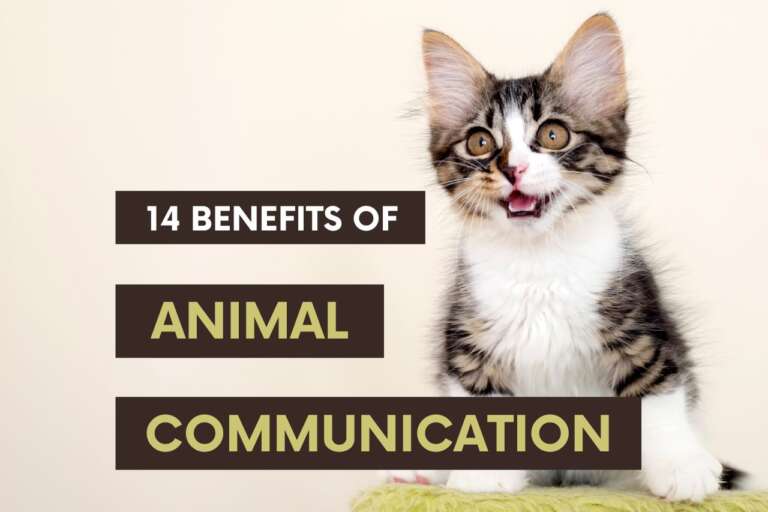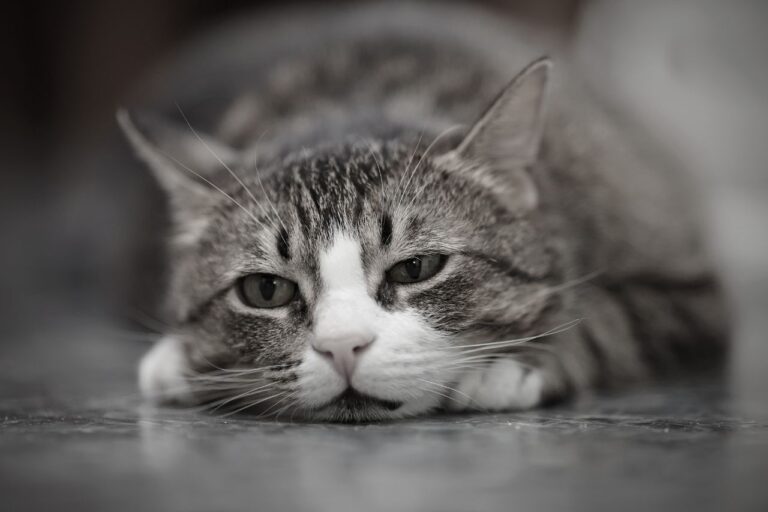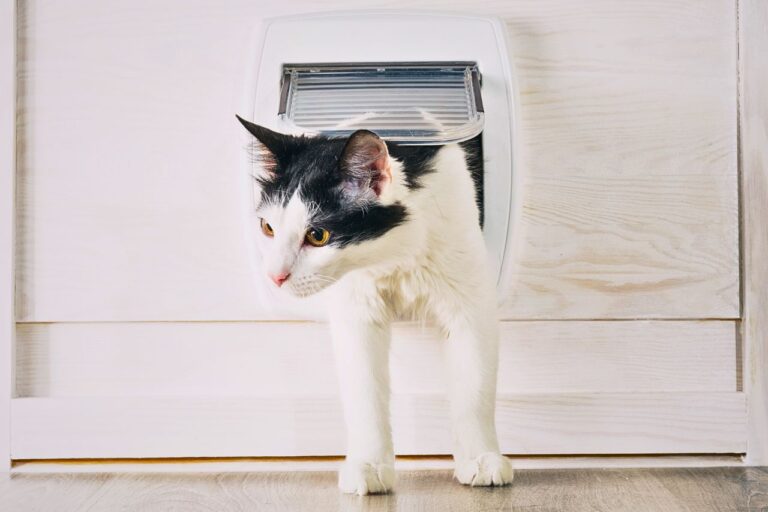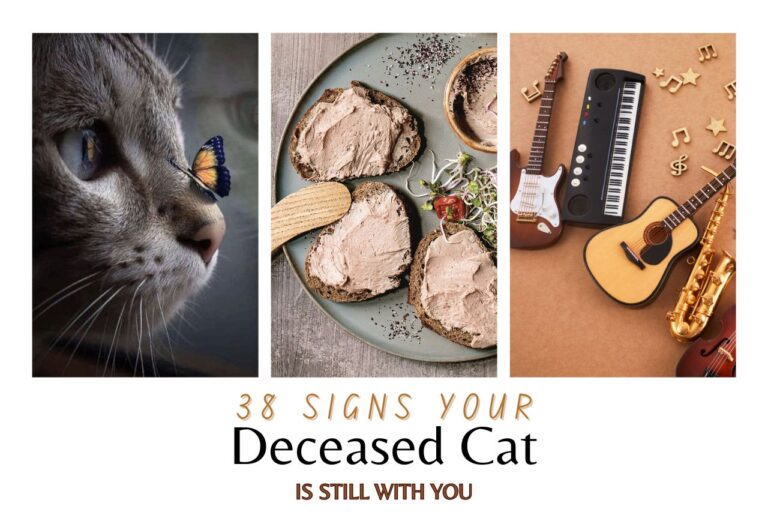Our pets mean the world to us. They’re family, best friends, and little souls who love us unconditionally. That’s why it’s so heartbreaking to even think about losing them.
But as hard as it is, death is a natural part of life — and one day, we may have to face the question: “Is my cat dying?”
When cats are nearing the end of their life, especially in old age, they often show signs that something is changing. It can be scary and emotional, but knowing what to look for can help you give your cat the love and comfort they need.
In this post, we’ll go over the common signs that your cat may be dying and how you can support them with kindness and care through their final days.
1. Lose of appetite and thirst
As our beloved feline companions age, it is common for cats to lose interest in food and water. Just like humans, cats can sometimes feel too tired or weak to eat or drink, especially when they are feeling unwell. Their bodies may also recognize that processing food and liquids takes effort, so they may lose their appetite and thirst. Additionally, some medications can affect their sense of taste and smell, making them less interested in food and water.
2. Extreme Weight Loss
Senior cats are prone to weight loss as they get older due to normal muscle loss. As your cat ages, they are prone to weight loss due to muscle loss. Their body becomes less efficient at digesting and building protein, causing them to lose muscle mass.
But senior or sick cats can become extremely thin, with their ribs, spine, and hip bones protruding under their skin. This could be a result of their disinterest in food or due to an underlying health condition.
3. Changes in Behaviour
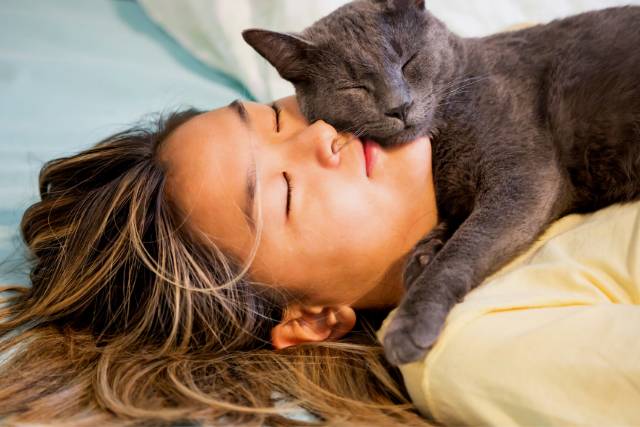
Another sign that your cat is in their final stages of life, is that you may notice changes in behaviour. Some cats may lose interest in things they once enjoyed, including their favourite treats, toys, and even the people they love.
Some cats may become more reclusive and irritable, while others may crave extra attention and affection from their human companions.
And others may stop responding to their owners or family members altogether. But it’s important to remember that their disinterest is not a reflection of their love for you.
They still care deeply, but may not have the energy to express it in the same way.
4. Develop Dementia-like symptoms
When your cat approaches the end of their life, they may develop dementia-like symptoms. They may feel confused or lost in familiar surroundings as they go about their daily routine. These symptoms are usually coupled with a distant look in their eyes and constant staring into space. In the worst of cases, our cats may no longer respond to their name or familiar commands and get anxious during these interactions.
5. Experiencing Seizures, Muscle Spasms or Twitches
As your cat approaches the end of their life, they may experience seizures. Some signs that your cat may be having a seizure include losing consciousness and experiencing uncontrolled muscle movements like tremors, twitching, and convulsions. There are various underlying conditions that can cause seizures, such as organ failure, brain tumours, kidney diseases, liver problems, hypoglycemia, and head trauma. You may also notice your cat losing coordination and accidentally bumping into things or knocking things down.
6. Feeling Lethargic and Limited Mobility
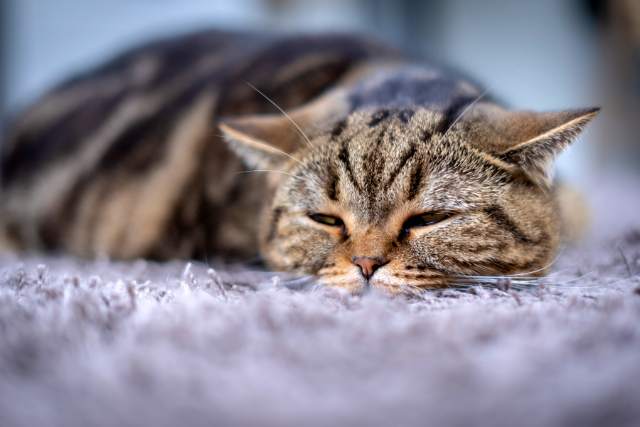
As cats age, they usually spend more time napping and resting in their favourite spot. But as they approach the end of life, they lose their life force and become lethargic. They might prefer to rest in a quiet and peaceful area, where they can relax undisturbed. Towards the end, they may not even have the energy to lift their head.
7. Changes in Physical Appearance and Odor
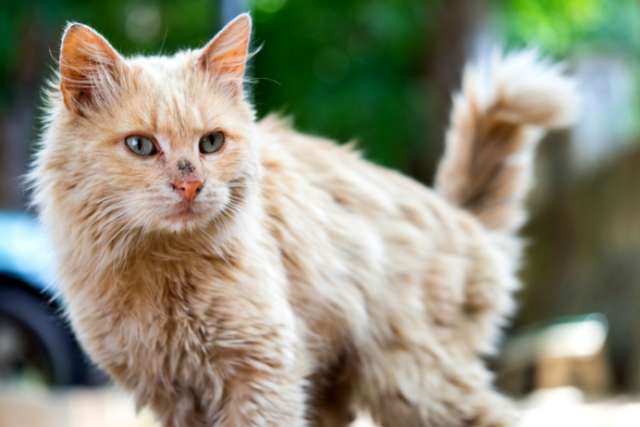
A change in your cat’s grooming behavior can be a sign that your cat is transitioning towards the afterlife. When a cat is feeling unwell, one of the first things that can be affected is their grooming behavior. They may stop cleaning themselves as often, leading to a greasy, scruffy-looking coat. Long-haired cats are especially prone to developing mats in their fur, particularly in areas such as their hind end, underbelly, and behind their ears.
8. Loss of Bowl and Bladder Control
As your cat’s health declines, they may have difficulty controlling their bladder and bowels as their organs start to shut down. This can result in accidents around the house and in their bed, even if they have been potty trained. It’s important to stay calm and reassure your cat that everything is ok. These are challenging times for both you and your furry friend. And remember, cats are extremely sensitive, they can pick up on all our emotions!
9. Seeking Solitude or Hiding
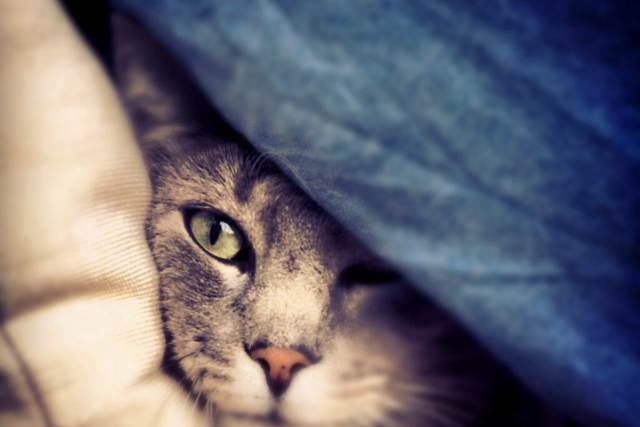
As cats near the end of their lives, they tend to seek out peaceful and cozy places to spend their last moments. They may hide or spend more time alone, like under furniture or outside. While it can be worrying to see your cat behaving this way, it’s essential to offer them love and support during this challenging time.
10. Shallow or Abnormal Breathing
As cats near the end of their life, they may have difficulty breathing, shallow breaths, and uneven breathing patterns. You might notice that your cat struggles to catch their breath, and the time between each inhale and exhale may increase. If your cat’s breathing is unusual, it could mean they are approaching the end of their life. The likelihood of them dying increases with the number of symptoms they simultaneously exhibit.
11. Unable to Regulate Body Temperature
As cats near the end of their lives, they may struggle to regulate their body temperature and become more vulnerable to extreme temperatures. Even a warm environment may not be enough to keep them warm and you may notice their limbs feeling cool to the touch.
A healthy cat’s temperature usually ranges between 100 to 102.5 degrees Fahrenheit. But as they get closer to transitioning their heart weakens, and their body temperature may drop below 100 degrees Fahrenheit.”
12. Poor Response to Treatments
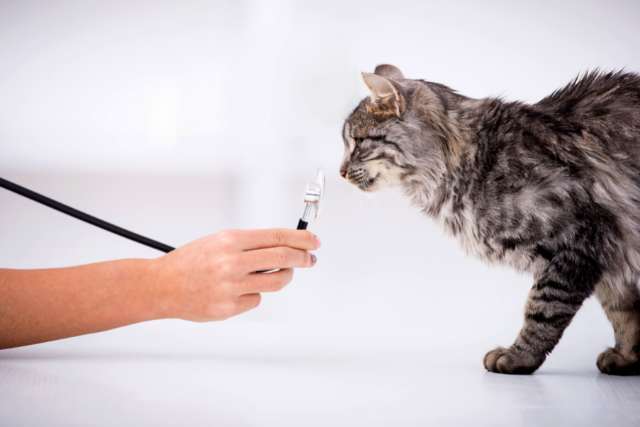
As cats grow older, they may develop illnesses that can often be managed with medications and other treatments for a long time. As time goes by, you may need to increase the medication dosages or switch to different treatments if your cat stops responding to the current one. This could be a sign that their body is deteriorating and unable to process medications effectively.
Help your Cat peacefully Transition
Provide comfort and reassurance to your cat as they embark on their journey to the realm of heaven. Through an animal communication session, gain valuable insights into your cat’s emotions and desires. This healing experience will not only deepen your understanding of your feline companion but also spiritually connect you, allowing you to peacefully accompany them into the afterlife.
Support other family pets
Losing a beloved companion is hard—not just for us, but for the animals left behind. An animal communication session can support your pet before, during, and after their friend has passed. It helps them feel heard, brings comfort through the grief, and offers gentle emotional support as they adjust to life without their companion.
Are your pets are struggling after losing a furry friend or family member? If so have a read of ” Do Pets Mourn the Loss of Other Pets?” and discover 18 simple and comforting ways to help a grieving dog after a loss.
Recommended book for pet loss and grief
If you’re grieving the loss of a beloved pet, The Pet I Can’t Forget by Karen A. Anderson offers comfort, hope, and real stories of afterlife signs from animal companions. This heartfelt guide helps you heal and reconnect, reminding you that love never truly ends.
FAQs about Signs My Cat Is Dying

Did my cat know I loved them?
Yes, absolutely. Your cat felt your love in the little things — how you talked to them, fed them, sat nearby, and just got them. Even if they were quiet or kept to themselves, they felt safe with you. That love stayed with them, right to the very end.
Do cats know when they’re dying?
Many cats do. They might hide more, sleep longer, eat less, or seem more distant. Some want to be near you, others pull away gently. It’s their way of preparing. Trust that they’re not afraid — they just know it’s time to rest.
How do I say goodbye to my cat?
You don’t need perfect words — just love. Talk to your cat, tell them how much they meant to you. Sit with them, hold them if they’re okay with it, and let your calm presence comfort them. Being there, heart open, means more than anything.
How can I help my cat at the end?
Keep things soft and quiet. Offer a warm spot to rest, gentle touches, and your loving voice. If they’re in pain, ask your vet about keeping them comfortable. The goal is peace, love, and helping them feel safe right until the end.
Supporting Your Cat in Their Final Moments
Knowing the signs your cat is dying can help you show up with love, awareness, and comfort. Look for changes in appetite, hiding behavior, labored breathing, or a deep tiredness that doesn’t lift. Trust your intuition — you know your cat better than anyone.
In their final days or hours, gentle touch, soft voices, warm blankets, and peaceful surroundings can help ease their transition. And most of all: love. That’s what they’ll remember — not the vet visits or the worry — but the love you wrapped them in every single day.
If you’re going through this now, or if you’ve walked this road before, feel free to share your story in the comments. It might bring healing — not only for you, but for someone else who needs to hear they’re not alone. 💛
Final Thoughts
As pet owners, it’s important to recognize when our furry companions are reaching the end of their journey. Some of the signs to watch out for include:
- Loss of appetite or thirst
- Excessive weight loss
- Changes in behaviour
- Diminished cognitive function
- Having seizures
- Decreased energy levels and mobility
- Changes in physical appearance and unusual odors
- Loss of bladder or bowel control
- Seeking solitude
- Abnormal breathing and shortness of breath
- Difficulty regulating body temperature
- Poor response to medical treatment
Though saying goodbye is never easy, understanding these signs can help us provide our beloved pets with the best possible end-of-life care filled with compassion and love.
Intrigued by how our departed pets communicate with us? Don’t miss my latest blog post revealing “25 unmistakable signs they send from heaven”, expressing their affection and longing for our presence.
Thank you for reading, I hope you found this blog post useful.
Disclaimer: As an Amazon Associate, I earn from qualifying purchases. When you buy through links on our site, we may earn an affiliate commission at no extra cost to you.

